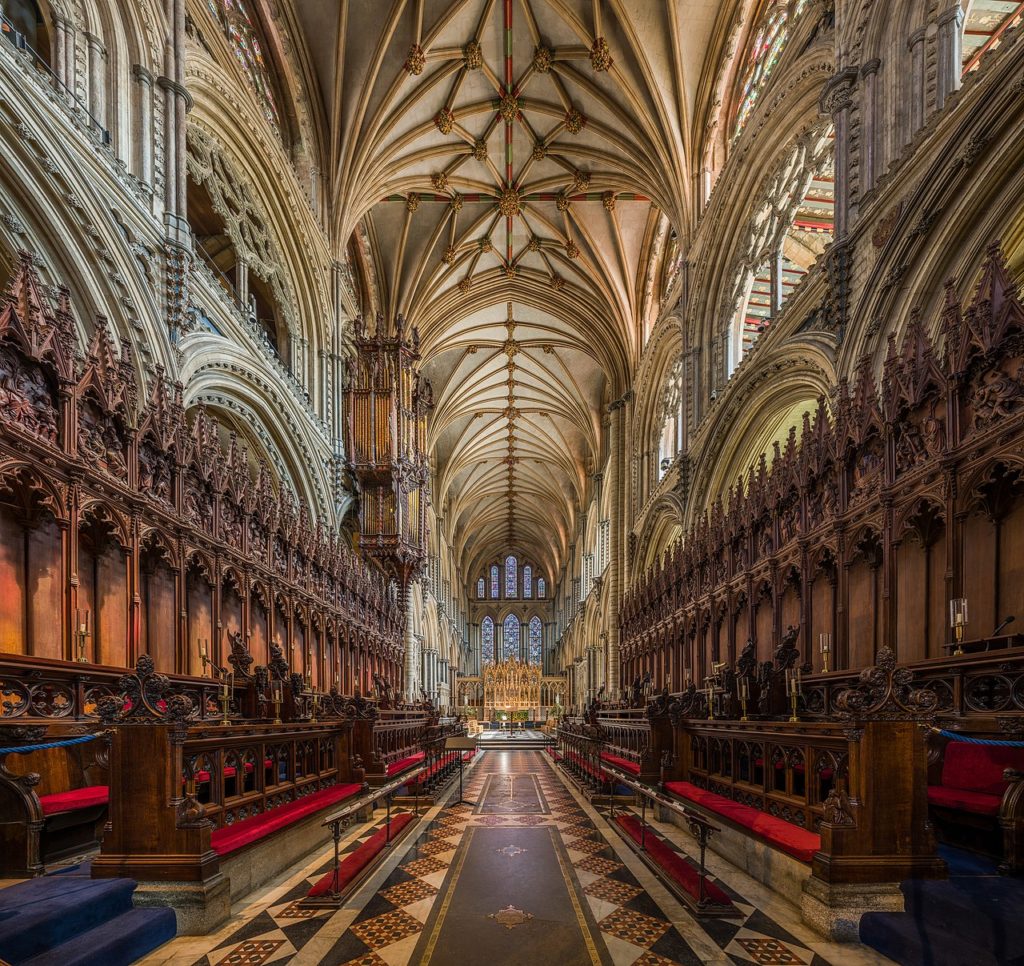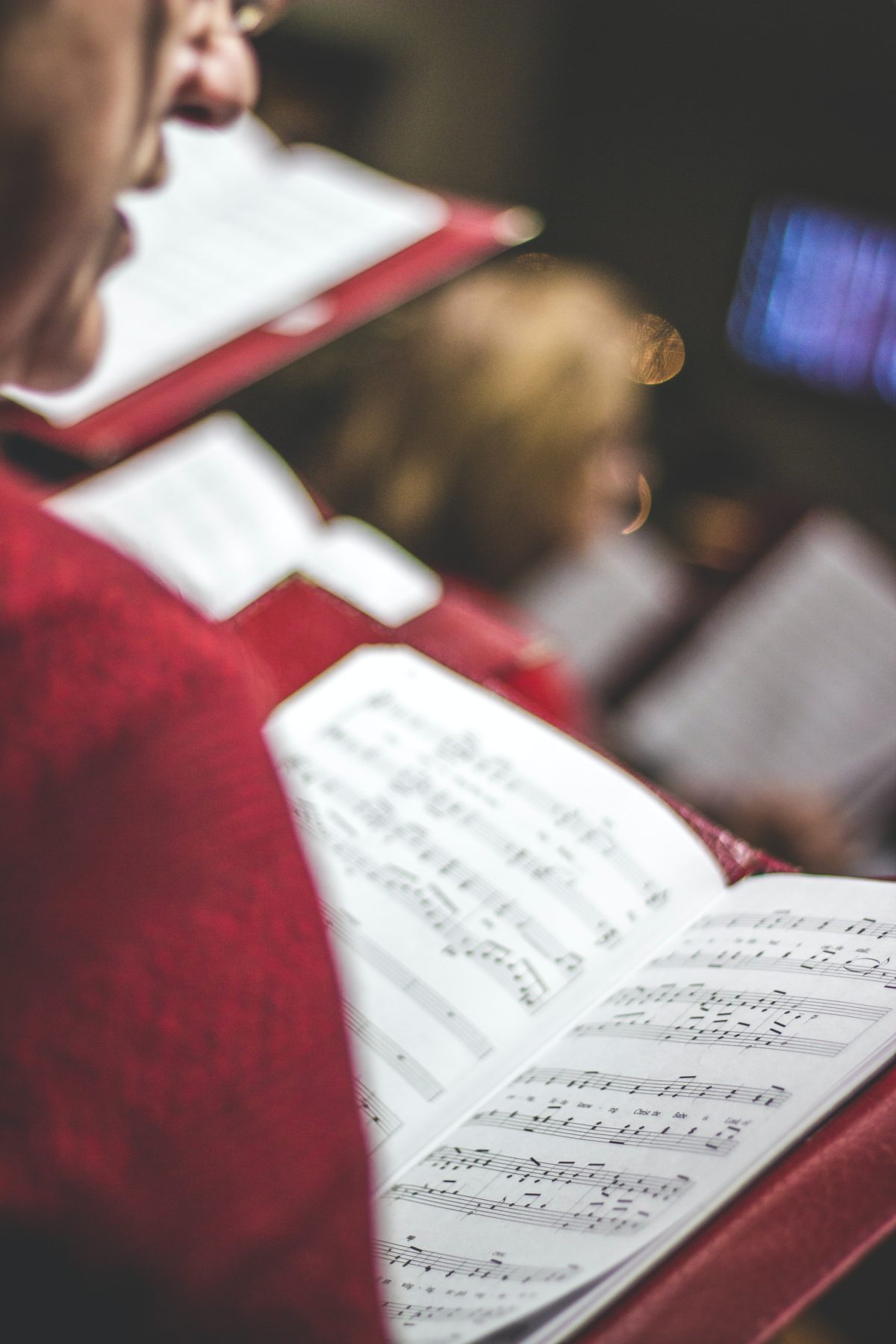I ve spent the half-hour previous to writing this trying to record myself singing the hymn Of the Father’s heart begotten for our school choir’s recorded and remote service for Candlemas. The half-hour it took to record a four-minute hymn can be ascribed to both my confusion with the words from Of the Father’s love begotten (with which I am far more familiar) and the consideration that, if hearing one’s voice recorded is embarrassing, imagine what that would be like with hearing one’s own voice singing solo without accompaniment and with and exactingly proven with video evidence.
On a totally unrelated note, I can’t sing, in the most traditional sense of the word, well. The embarrassment comes from being middle-class.
I must protest, though, in the words of the traditional schoolboy excuse, that ‘no-one told me’. I was in my mid-20s before I had even heard Of the Father’s love begotten or The Sussex Carol or Adam Lay Ybounden, let alone sung them. As contemporary culture tends to oversimplification and blaming others, let me make it clear that it is entirely the fault of John Knox. The Church of Scotland (to use a ghastly phrase, my ‘faith tradition’) has many virtues, notwithstanding its recent call for wealth redistribution and nationalisation, but its choirs are rarely expansive in their repertoire or ambitious in their tunefulness. Even at St Andrew’s university on the Scottish coast, my responses to the chapel choir ranged from “meh” to “oh, that was quite nice”. To paraphrase Yes Minister‘s Bernard Woolley, I didn’t know what I didn’t know.

It might be worth noting parenthetically at this point that there is no difference between the acceptability to the Almighty of these or any other various forms of worship. I will have to ask some theologian friends, but I suspect that all worship, even acoustic guitars, is acceptable unto God. Having said that, Psalm 150 includes trumpets, dancing and even tambourines, which were retro even in the Psalmist’s time.
It took until teacher training (with obligatory integrated marxism) in a university town with probably the best choral tradition in the country (world?) for me to get a sense of what I had been missing. My extensive knowledge of hymnody (that I know all the hymns in the school hymn book by heart is not quite true; I just know all the good ones) put into my mind the John S.B. Monsell hymn, O worship the Lord in the beauty of holiness. Beauty is not something one would find in the banality of a strengths, weaknesses, opportunities and threats (SWOT) analysis; which is exactly what makes it such a valuable commodity. Perhaps the prime minister will announce a new focus on Gross National Beautifulness. Having said all this, beauty is not confined to the upper reaches of the Anglican Communion; one of my most vivid memories is of singing unaccompanied metrical psalms at a tiny church in rural Perthshire on Millennium Night.

Despite reading the History of English Church Music by Andrew Gant, I don’t have the musical vocabulary to express why choral music moves me in the way it does. Undoubtedly, although this is hardly an original thought, the sound links me in time and space to Christians throughout history and around the world today. These sounds are, of course, beautiful, but just as beautiful is the silence which surrounds the sound and gives it form; it is the silence where, as St Teresa of Calcutta suggested, we encounter the divine. It lifts one up.
Meeting my wife was, without doubt, the best thing that has happened to me. Going to her family’s church (where later we were married) was a revelation because the liturgy was sung. Some of you may be thinking, “Yes, that’s right, and…”. To me, it was something of a turning point in my approach to worship. In case any of my centuries of presbyterian-elder forebears are reading this, I am referring to a High Church not Anglo-Catholic CofE establishment (an under-appreciated difference).
Perhaps I would not appreciate this if I had been wrapped in choral culture in my youth. It is expected in the world we will live to be bitter or aggressive about this ‘deprivation’; that would be a grave error. The more we tell people that choral music (or indeed anything) is elitist or not for them, the more they believe it and the more it becomes a self-fulfilling prophecy. One of the more memorable parts of the Royal Wedding of 2018 (after Bishop Curry and the sense of impending doom) was the Tallis anthem If ye love me.

Every church and cathedral in the land, in normal times, is free to attend, as is YouTube, where I have discovered the work of Arvo Part, Chanticleer (where I found the hitherto unknown personage of a counter-tenor) and James Macmillan, whose Fifth Symphony London première I had the great pleasure of hearing at the Barbican last year. At all times, especially the more challenging ones, it is our responsibility to support those who create art, and I look forward to hearing groups such as Tenebrae and Voces8 in real life.
I tend to think that one becomes a schoolmaster to share, however imperfectly, that which moves us. There is beauty in the world, and the beauty of holiness at that, which is hidden from so many because nobody told them about it. Tell them.
Peter Blair is head of boarding at Haileybury School

